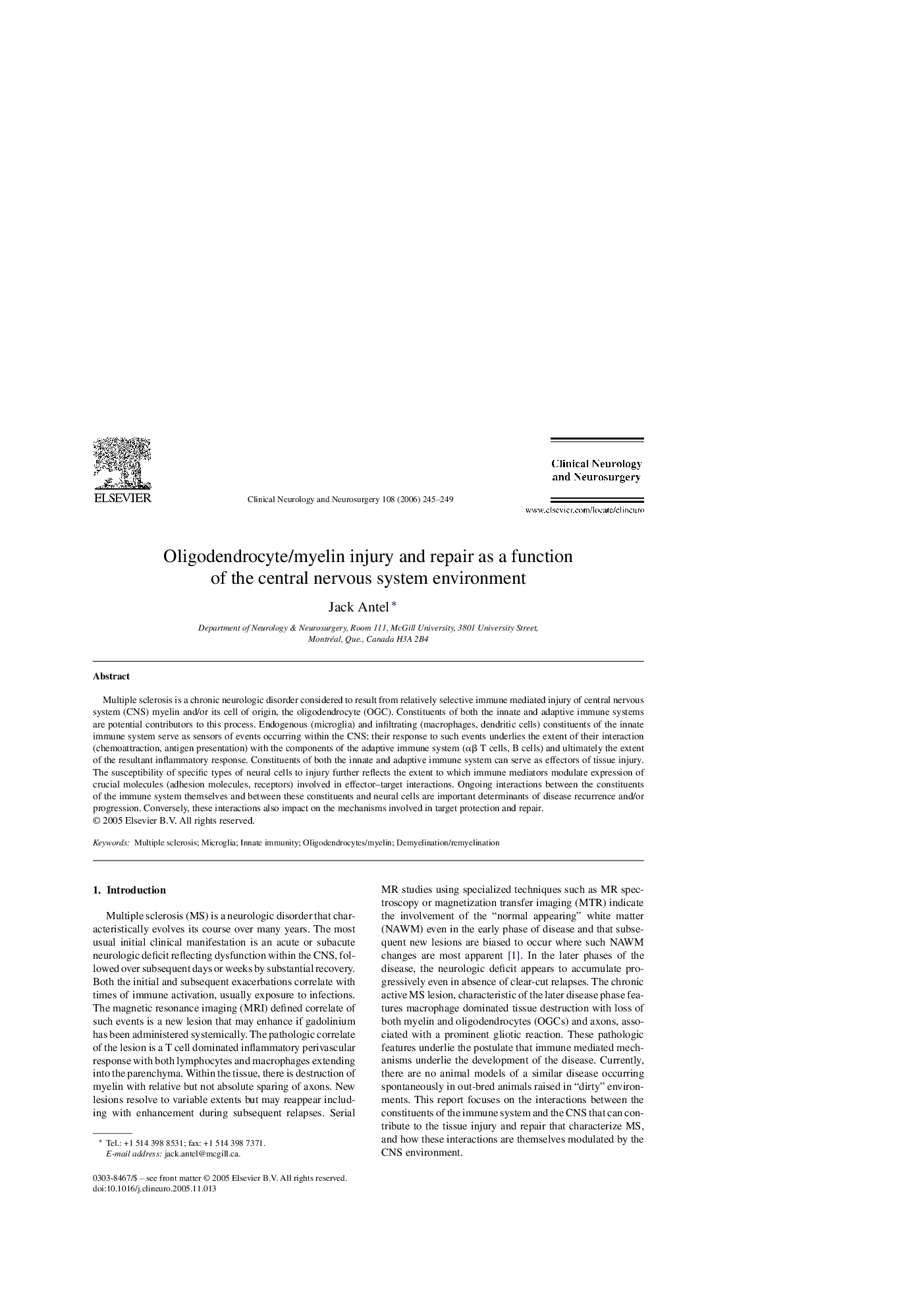| Article ID | Journal | Published Year | Pages | File Type |
|---|---|---|---|---|
| 3042421 | Clinical Neurology and Neurosurgery | 2006 | 5 Pages |
Multiple sclerosis is a chronic neurologic disorder considered to result from relatively selective immune mediated injury of central nervous system (CNS) myelin and/or its cell of origin, the oligodendrocyte (OGC). Constituents of both the innate and adaptive immune systems are potential contributors to this process. Endogenous (microglia) and infiltrating (macrophages, dendritic cells) constituents of the innate immune system serve as sensors of events occurring within the CNS; their response to such events underlies the extent of their interaction (chemoattraction, antigen presentation) with the components of the adaptive immune system (αβ T cells, B cells) and ultimately the extent of the resultant inflammatory response. Constituents of both the innate and adaptive immune system can serve as effectors of tissue injury. The susceptibility of specific types of neural cells to injury further reflects the extent to which immune mediators modulate expression of crucial molecules (adhesion molecules, receptors) involved in effector–target interactions. Ongoing interactions between the constituents of the immune system themselves and between these constituents and neural cells are important determinants of disease recurrence and/or progression. Conversely, these interactions also impact on the mechanisms involved in target protection and repair.
